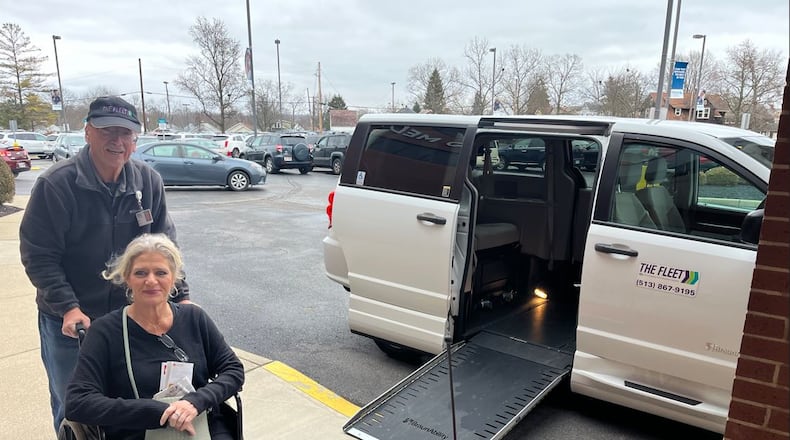The foundation launched the Non-Emergency Medical Transportation Program at Kettering Health Hamilton in the fourth quarter of 2023, and over that time, they provided more than 300 rides to patients requiring frequent medical care. The service is specifically for those with appointments at the hospital’s outpatient cancer care and the Center for Wound Healing. These patients often require multiple weekly visits.
Reliable transportation “is a lifeline,” said Sonja Kranbuhl, director of the Fort Hamilton Hospital Foundation. “Missed appointments can drastically reduce the likelihood of recovery and increase risks of severe complications. This program directly confronts these challenges, ensuring that transportation barriers do not impede critical care.”
The program was seeded with a $50,000 grant from the Hamilton Community Foundation, and the amount is spread over three years. The program embodies the spirit of community and philanthropy embraced by the HCF.
“It’s heartening to see Community First Solutions, a pillar in Hamilton’s nonprofit sector, join forces in this vital service,” Hamilton Community Foundation President and CEO John Guidugli, who supports the community-centric approach to this transportation service. “This collaboration between non-profits exemplifies our community’s commitment to nurturing a healthier, more accessible community.”
Medical transportation costs are expensive, and they vary, according to several private companies’ websites. There is the base rate, which doesn’t include mileage or if wheelchairs or stretchers are needed. After-hours, weekends and holidays cost more.
However, for the Foundation’s program, not all patients are accepted as they are screened by healthcare providers at Kettering Health Hamilton. Medical requirements, individual situations and access to other transportation services are taken into consideration, though there are no age minimums or restrictions.
Cynthia Benge, an LPN and hyperbaric safety director at Kettering Health Hamilton, called the program “an absolute blessing.”
“It’s a relief for our patients, especially those who can’t drive due to their wounds or would struggle with the additional financial stress for transport,” she said. “Seeing the immediate relief and gratitude on our patients’ faces when they learn they have a reliable way to reach the Center for Wound Healing is truly special.”
The program uses “The Fleet” at Community First Solutions, which already provides transportation services to support older adults in the greater Hamilton area.
“Our partnership with Fort Hamilton Foundation provides patients who are in need of assistance with transportation with the services they need to attend their appointments and receive care,” said Danielle Webb, spokesperson for Community First Solutions.
“Community First Solutions has a long history of partnering with Kettering Health to support the health and wellness needs of our community. Kettering Health is an incredible partner, and we have worked closely through the years on a variety of initiatives to support the needs of Southwest Ohio residents.”
Kranbuhl said they do need help from the community so the Fort Hamilton Foundation can continue this program into the future. Contributions can be made to the foundation’s Angel Fund, and earmarked for the transportation program because they eventually want to expand to other hospital departments.
“We would love to see more community support and engagement,” she said, adding contributions can either be a one-time donation or a sustaining one. “Every dollar counts. it’s always great to get a big gift, but when we’re able to talk about being able to expand the program to additional patients and additional service lines, it’s going to take more money.”
In 2024, the goal is to expand the service for the hospital’s cardiac rehab and outpatient physical therapy.
If anyone’s interested in sustaining donations, Kranbuhl said she’d “love to talk to them about how they can make a difference in the lives of their friends and neighbors. This is our community.”
About the Author

